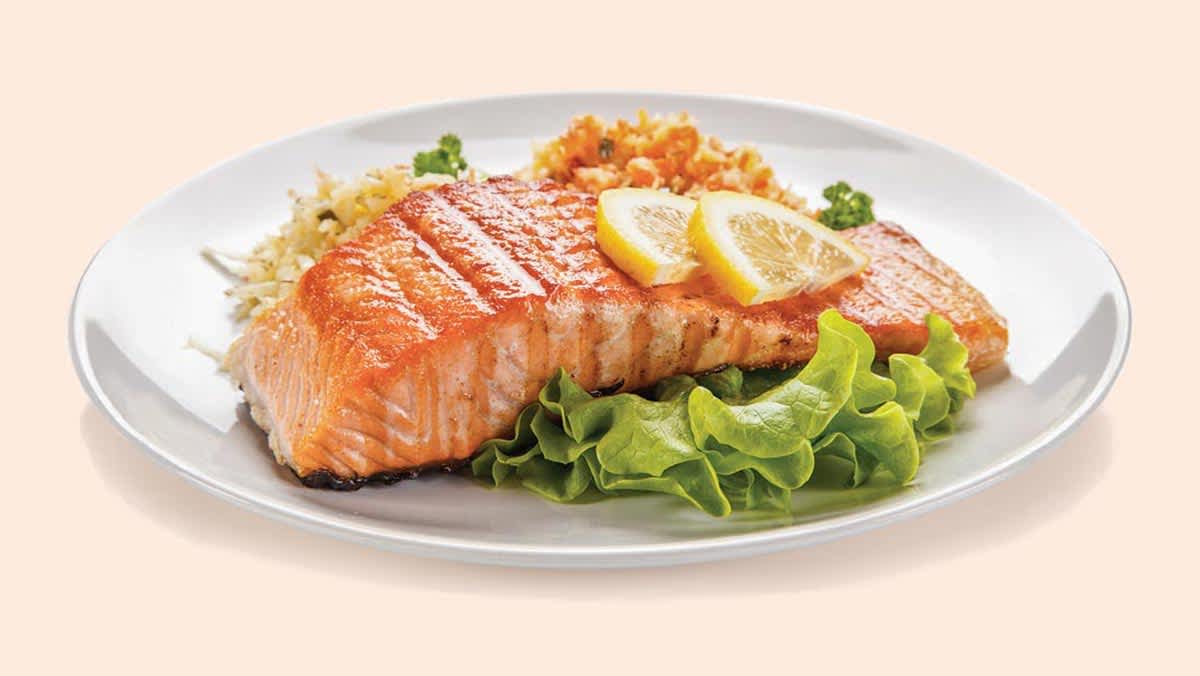While vitamin absorption from food can decrease with age, consuming B12-rich foods is still important. Meat, poultry, fish, dairy, and eggs, as well as fortified foods, like some cereals and soy milk, contain the vitamin.
The recommended intake is 2.4 micrograms a day. Here’s the amount found in some commonly eaten foods:
• Salmon, roasted, 3.5 oz.: 2.8 mcg
• Ground beef, 85% lean, 3.5 oz.: 2.6 mcg
• Tuna, light, canned in water, 3 oz.: 2.5 mcg
• Milk, 1%, 1 cup: 1.2 mcg
• Greek yogurt, low-fat, 3/4 cup: 0.9 mcg
• Egg, large: 0.4 mcg
• Cheddar cheese, 1 oz.: 0.3 mcg
• Chicken breast, roasted, 3.5 oz.: 0.3 mcg
Older adults might benefit from a supplement, though, Brooks says. The vitamin is better absorbed when it comes from fortified foods and supplements. A supplement may be especially helpful if you have a medical condition that affects your gut health (such as celiac or inflammatory bowel disease), you’ve had stomach or small intestine surgery, or you regularly take acid-blocking drugs for heartburn or GERD, or metformin for diabetes, she says.
It’s not unusual for a multivitamin to have 25 mcg and for individual B12 supplements to have 500 or 1,000 mcg. At those levels, vitamin B12 is considered safe. But exactly how much you need will depend on your B12 test results and the factors that could be affecting your levels of the vitamin, so it’s best to check with your doctor.
